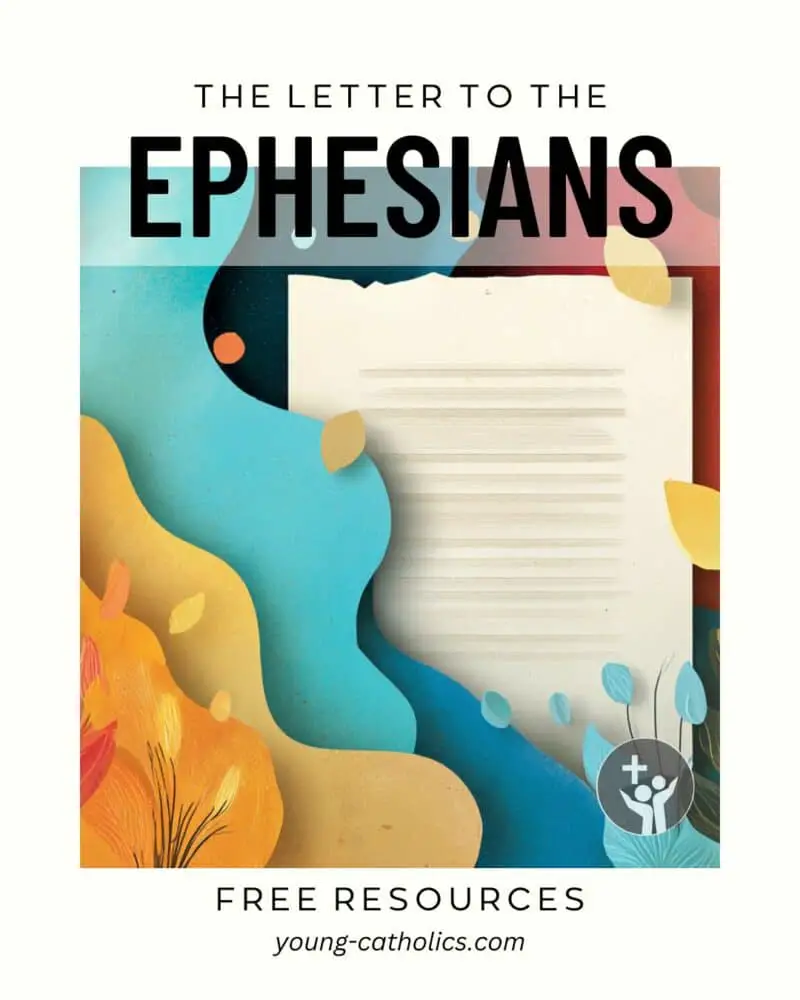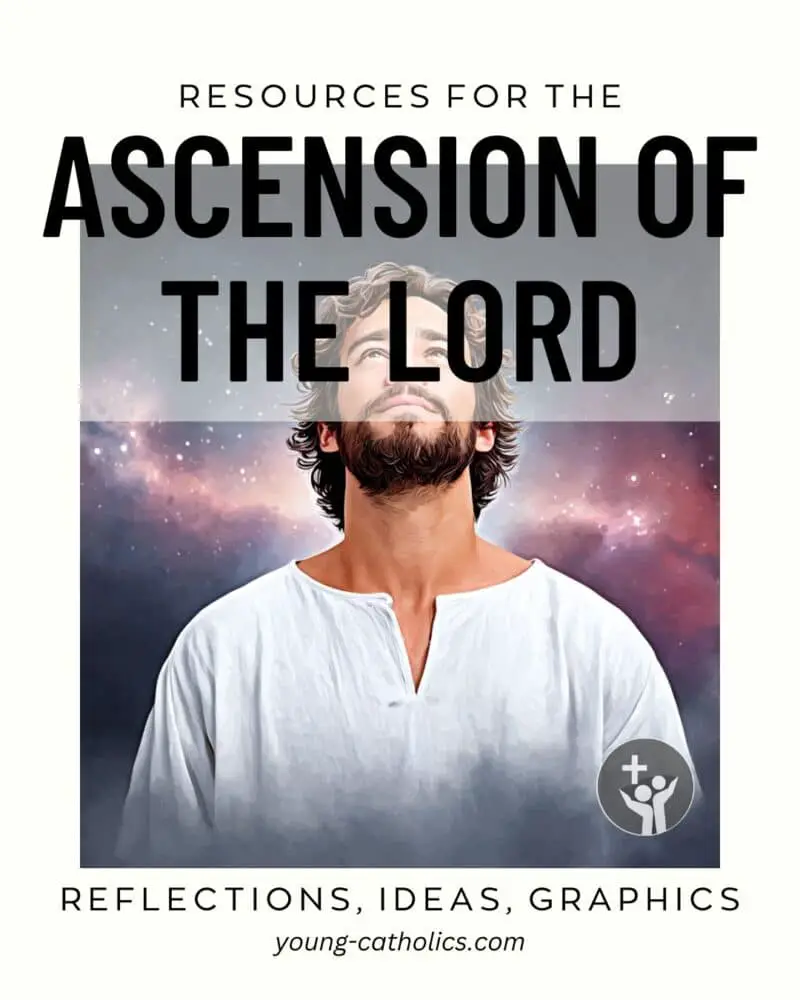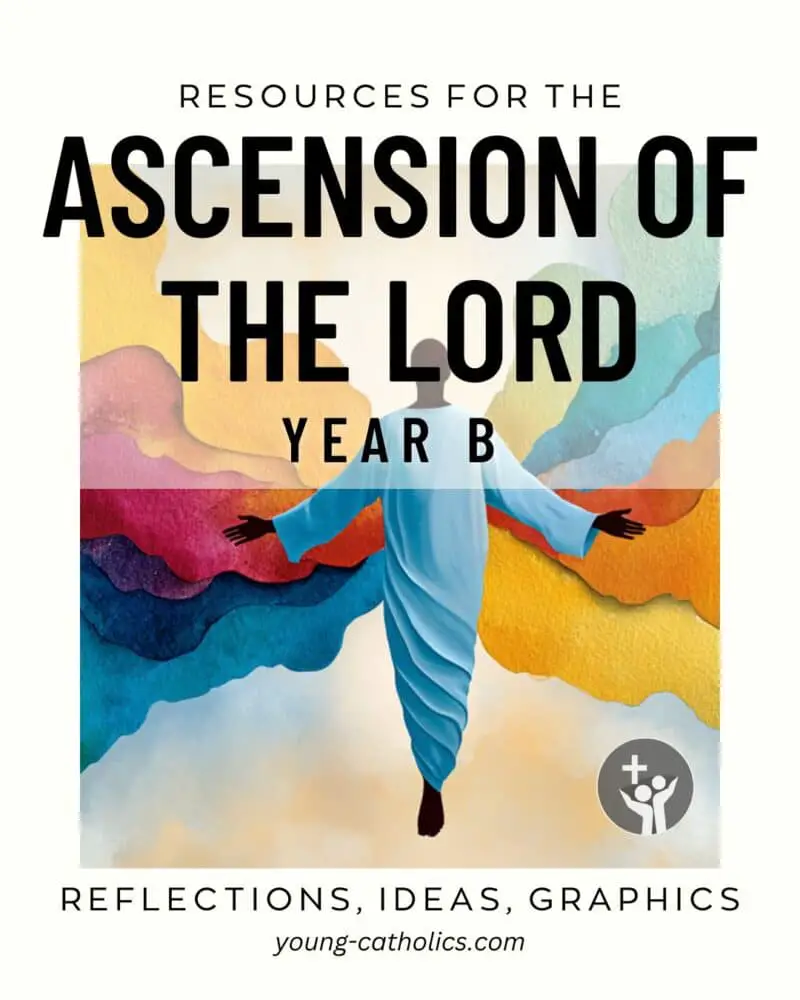The Letter to Ephesians

The Letter to the Ephesians is found in the New Testament. It is written in the name of Saint Paul. Many believe Paul wrote it while he was in prison. Others think it may have been written later by one of his followers. Either way, it shares Paul’s teachings and love for the Church.
Ephesians is different from some of Paul’s other letters. It does not address one problem or one group of people. Instead, it speaks more generally. It helps all believers understand their faith. It gives guidance for how Christians should live together in love and unity.
This letter speaks a lot about the Church. It calls the Church the Body of Christ. Jesus is the head, and we are the members. Ephesians reminds us that we are part of something bigger. We belong to God’s family, and we are all called to grow in holiness.
The letter also gives advice for daily life. It talks about marriage, family, and work. It encourages kindness, peace, and forgiveness. It shows us how to live as followers of Jesus. Even today, these words help us walk in faith and love.
Who Wrote Ephesians and What Was Going On?
Ephesians is a letter from the early Church. It is written in the name of Saint Paul. Paul was an apostle who helped spread the message of Jesus. He traveled to many places, started Christian communities, and wrote letters to help guide them.
Many people believe Paul wrote this letter while he was in prison. Others think it may have been written later by one of his followers who knew his teachings well. Either way, the Church still sees it as part of God’s Word. It speaks clearly about faith, the Church, and how to live as Christians.
The letter was likely written around the year 60 AD. This was a time when the early Christians were facing many struggles. They lived in a Roman world filled with different religions and beliefs. Christians were often misunderstood or treated unfairly. Letters like Ephesians helped them stay strong in their faith.
Ephesians was not written just for one group. It was meant to be shared with many churches. That is why it speaks in a broad way. It encourages all believers to live in unity, love, and peace. It reminds us that we are part of Christ’s Body, no matter where we live.
How Ephesians Was Written
Ephesians has a calm and thoughtful tone. It feels more like a sermon than a letter. It does not deal with problems or arguments like some other letters from Paul. Instead, it teaches and encourages.
The letter uses simple ideas that are repeated in different ways. It talks about grace, peace, unity, and love. These words come up often. They help us remember what matters most in the Christian life.
Ephesians also includes prayers and hymns. These parts feel like worship. They remind us that faith is not just about knowing things. It is also about praising God and living with joy.
Another special thing about Ephesians is how it talks about the Church. It uses pictures and symbols. It says the Church is a body, a building, and a family. These simple images help us understand our place in God’s plan.
What Ephesians Teaches Us About Our Faith
Themes in Ephesians offer clear guidance for our faith. The letter speaks about ideas that match Catholic teaching. It helps us see our role as part of the Church and as followers of Jesus.
Some key themes are:
• Unity in Christ – Ephesians teaches that all believers form one body in Jesus. We are one family with no divisions.
• Grace and salvation – It shows that we receive God’s gift of life through grace. This gift calls us to live with love and humility.
• The Church as a community – The Church is seen as a living body. We all play a part and help each other grow in faith.
• Living in peace – The letter encourages us to be peacemakers in our families and in our communities.
• Following Christ in daily life – It calls us to bring our faith into our work, our homes, and our social life.
These themes remind us to work together in the Church. They guide us to be kind and respectful. They help us live as true followers of Jesus.
What’s Inside the Letter to the Ephesians
Ephesians is made up of six chapters. The letter has two main parts. The first part teaches what we believe. The second part shows how to live it out.
Here is a simple breakdown:
- Ephesians 1:1–2:10 – We learn about grace, faith, and our new life in Christ.
- Ephesians 2:11–3:21 – Paul talks about unity. Jews and Gentiles are now one in Christ.
- Ephesians 4:1–5:20 – Paul gives advice on how to live as Christians. He speaks about love, peace, and truth.
- Ephesians 5:21–6:9 – He talks about family and work. Husbands, wives, children, and workers all have a role to play.
- Ephesians 6:10–20 – This part speaks about the armor of God. It teaches how to stay strong in faith.
- Ephesians 6:21–24 – The letter ends with final greetings and a blessing.
Each section helps us understand our faith and how to live it. It shows that what we believe and how we act go hand in hand.
Why Ephesians Still Matters Today
Ephesians may be old, but it still speaks to us now. It helps us live as Christians in a busy and divided world. It reminds us that faith is not just for Sundays. It is for every day.
The message of unity is very important today. We often see people fighting or feeling left out. Ephesians tells us we are all one in Christ. It calls us to care for each other and to build peace.
The letter also helps us at home and work. It gives simple advice for being kind, honest, and respectful. It teaches us to forgive and to put others first. These are things we all need to hear.
Ephesians also reminds us to stay strong in faith. Life can be hard. We need prayer, community, and the armor of God. This letter gives us tools to stand firm and stay close to Jesus.
When We Hear Ephesians at Mass
The Letter to the Ephesians is read many times during the year in the Roman Catholic lectionary. We hear it on Sundays, weekdays, and at special liturgies. The words help us understand who we are as the Church and how to live as followers of Jesus.
One well-known reading is from Ephesians 5:21–32. It is often read at weddings. It talks about love between husband and wife. It also connects marriage to the love between Christ and the Church.
Ephesians 6:10–20 is another reading people remember. It speaks about the armor of God. This is read during the weekday cycle and reminds us to stay strong in our faith.
Ephesians is also read during certain feast days. The readings remind us of grace, unity, and peace. They help us reflect on our call to live as the Body of Christ.
Click on a link below for more information and resources for a specific reading.

15th Sunday in Ordinary Time Year B
Chosen and Blessed in Christ
In Ephesians 1:3-14, Saint Paul praises God for blessing us through Jesus. He reminds us that we were chosen to be part of God’s family before the world began. God wants us to live holy lives, filled with love. Through Jesus, we are forgiven and made new.
This reading shows that God has a plan to bring all things together in Christ. We are not here by accident. We are part of something bigger. Paul reminds the early Christians, and us today, that we belong to God. The Holy Spirit helps us live in hope as we wait for the fullness of God’s plan.

The Immaculate Conception of the Blessed Virgin Mary
God’s Plan and Our Purpose
In Ephesians 1:3-6, 11-12, Saint Paul reminds us that God chose us before we were born. We are part of his family because of Jesus. This is not because of anything we did, but because of God’s love. We are called to live in a way that brings praise to God.
The reading also tells us that we have a purpose. We are part of God’s plan, and that plan is good. We are not alone. When we live with trust in God, we give witness to others. Our hope points to something greater than ourselves.

The Ascension of the Lord
Eyes of Faith and the Power of Christ
In Ephesians 1:17-23, Paul prays that we will grow in wisdom and know God more clearly. He asks that our hearts be open to see the hope we have been given. This hope is not just for later, but for now. It is the promise of life with Christ.
Paul also reminds us that Jesus is above all things. God raised him from the dead and placed him over the Church. The Church is his body, and he leads it with strength and care. We are part of that body and share in his mission.

4th Sunday of Lent Year B
Saved by Grace to Do Good
In Ephesians 2:4-10, Paul reminds us that God brought us to new life through Jesus, even when we were lost in sin. We didn’t earn this. It is a free gift. God wants us to live with hope and to remember that we are deeply loved.
Paul also says that we were made for a purpose. We are God’s work, created to do good things. These good works are part of God’s plan for us. When we live with kindness and love, we follow the path God set for us.

16th Sunday in Ordinary Time Year B
Jesus Brings Us Together
In Ephesians 2:13-18, Paul says that Jesus brings peace to those who were far from God and those who were near. Through his death, he broke down the wall that divided people. Now all are welcome. We are no longer strangers to one another.
Jesus unites us into one family. He gives peace to all, no matter where we come from. Through him, we all have access to the Father. This peace is not just for one group, but for everyone who believes.

The Epiphany of the Lord
God’s Plan Is for Everyone
In Ephesians 3:2-3A, 5-6, Paul talks about the special mission he received. God showed him a mystery that was hidden before. Now it has been made clear by the Holy Spirit and shared with the apostles and prophets.
The message is simple: everyone is welcome. Gentiles are now part of the same family as the Jews. All who believe in Jesus share in the same promise. They are part of the Church and share in the mission of Christ.

The Solemnity of the Sacred Heart of Jesus Year B
Strength Through Christ’s Love
In Ephesians 3:8-12, 14-19, Paul shares how he was chosen to preach about Jesus, even though he felt unworthy. His mission was to tell the world that everyone is welcome in God’s plan. This plan, once hidden, is now made known through the Church.
Paul then prays for strength and love. He asks God to help the believers grow in faith and be rooted in love. He wants them to understand how wide and deep Christ’s love is. This love fills their lives and helps them live with purpose and hope.

17th Sunday in Ordinary Time Year B
Called to Live in Unity
In Ephesians 4:1-6, Paul urges believers to live in a way that matches their calling. He asks them to be humble, gentle, and patient. He reminds them to show love and to work hard for peace in the community.
Paul also speaks about unity. There is one body, one Spirit, one hope, one Lord, one faith, one baptism, and one God. We are all part of one family. This message calls us to stay connected and work together as followers of Jesus.

Ascension of the Lord Year B
One Body, Many Gifts
In Ephesians 4:1-13, Paul urges the Church to live with humility, patience, and love. He reminds us to stay united, since we are all part of one body and share one faith. Peace and unity are key to life in the Church.
Paul also explains that Jesus gave each person special gifts. Some are called to be apostles, others teachers or leaders. These roles help the Church grow strong in faith. When we use our gifts, we help build up the body of Christ and grow together in love.

18th Sunday in Ordinary Time Year B
Out with the Old, In with the New
In Ephesians 4:17, 20-24, Paul reminds the Christians in Ephesus not to live like those who don’t know God. He warns them not to follow empty ways of thinking that lead to confusion and sin. That kind of life is selfish and far from God.
Instead, they are called to change. They have learned the truth about Jesus, so they must let go of their old habits. Paul tells them to live in a new way, with a clean heart and a fresh mind. They should become the kind of people God made them to be—honest, good, and loving.

19th Sunday in Ordinary Time Year B
Let Love Guide Your Actions
In Ephesians 4:30–5:2, Paul tells the believers to avoid anger, yelling, and holding grudges. These things hurt others and go against God’s spirit. Instead of acting out of frustration or hate, they should stay kind and forgiving. This helps build peace in the community.
He also encourages them to follow Jesus by loving others like he did. Just as Christ gave himself for us, we should give up selfish ways. Love, not bitterness or harsh words, should lead how we treat others. When we live this way, we stay close to God and grow together in faith.

4th Sunday of Lent Year A
Walk in the Light
In Ephesians 5:8-14, Paul tells the people they used to live in darkness but now belong to the light. He urges them to live in a way that shows goodness, honesty, and truth. They should avoid actions that hide in the dark and instead do what pleases God.
He also says not to take part in sin but to shine a light on it. When wrong is exposed, it loses power. Paul ends with a call to wake up and turn to Jesus. Living in the light brings new life and helps others find their way.

20th Sunday in Ordinary Time Year B
Make Good Use of Your Time
In Ephesians 5:15-20, Paul encourages the people to live wisely. They should think before acting and not waste time. The world is full of trouble, so they need to stay alert and make smart choices. He tells them not to get drunk, but to be filled with the Spirit.
Paul also reminds them to support each other. They should sing together, give thanks to God, and show respect to one another. A joyful and thankful heart helps the whole community grow stronger in faith.
At Weekday Masses
- Thursday of the 28th Week in Ordinary Time Cycle II – Ephesians 1:1-10: Blessings in Christ
- Friday of the 28th Week in Ordinary Time Cycle II – Ephesians 1:11-14: Chosen in Christ
- Saturday of the 28th Week in Ordinary Time Cycle II – Ephesians 1:15-23: Prayer for Wisdom and Knowledge
- Monday of the 29th Week in Ordinary Time Cycle II – Ephesians 2:1-10: Saved by Grace through Faith
- Tuesday of the 29th Week in Ordinary Time Cycle II – Ephesians 2:12-22: United in Christ’s Peace
- Feast of St. Thomas, Apostle – Ephesians 2:19-22: Citizens with the Saints
- Feast of Sts. Simon and Jude, Apostles – Ephesians 2:19-22: Members of God’s Household
- Wednesday of the 29th Week in Ordinary Time Cycle II – Ephesians 3:2-12: The Mystery of Grace Revealed in Christ
- Thursday of the 29th Week in Ordinary Time Cycle II – Ephesians 3:14-21: Glory Through Christ
- Friday of the 29th Week in Ordinary Time Cycle II – Ephesians 4:1-6: Living Worthy of Our Calling
- Feast of St. Matthew, Apostle and Evangelist – Ephesians 4:1-7, 11-13: Living a Life Worthy of Our Calling
- Saturday of the 29th Week in Ordinary Time Cycle II – Ephesians 4:7-16: Growing in Christ’s Body
- Monday of the 30th Week in Ordinary Time Cycle II – Ephesians 4:32–5:8: Living as Children of Light
- Tuesday of the 30th Week in Ordinary Time Cycle II – Ephesians 5:21-33: Marriage and the Church
- Wednesday of the 30th Week in Ordinary Time Cycle II – Ephesians 6:1-9: Respect and Fairness in All Relationships
- Thursday of the 30th Week in Ordinary Time Cycle II – Ephesians 6:10-20: Stand Firm with God’s Armor
Resources
One Church, One Family
In this episode of the Bible in a Year Podcast, Fr. Mike Schmitz reflects on Ephesians chapters 1, 2, and 3. He reminds us that Paul wrote this letter while under house arrest in Rome. Even while confined, Paul used every moment to share the message of Jesus, especially with the guards and those around him.
Fr. Mike explains that Paul’s message to the Ephesians focuses on unity. Paul wants both Jewish and Gentile Christians to know they are one in Christ. All believers, no matter where they come from, are now part of the same family.
Fr. Mike highlights the words “But God” as a turning point in the letter. He says we were once dead in sin, but God made us alive in Christ. This grace is a gift, not something we earn. We are saved by faith.
He also points out that many people today still live without hope and without God. Paul calls all believers to remember they were once far away but are now brought near. In Christ, we are no longer strangers—we belong to God’s household.
Living a New Life in Christ
In this episode of the Bible in a Year Podcast, Fr. Mike Schmitz reflects on Ephesians chapters 4, 5, and 6. He says that Paul calls the Ephesians to live differently from the way they used to live. They must take off their old way of life and put on the new. This means being honest, kind, and forgiving—just as Christ forgave us.
Fr. Mike highlights Paul’s message about marriage in chapter 5. Many couples choose this passage for their weddings. Paul calls wives to be subject to their husbands and husbands to love their wives as Christ loved the Church. Fr. Mike explains this is not about control, but about love and mutual service—a “race to the bottom” where both give of themselves.
He also talks about Paul’s teaching on parents and children, and even slaves and masters. Paul teaches that everyone should treat each other with respect. Fr. Mike says this is not about power, but about love, service, and dignity for all people.
Finally, Fr. Mike points out Paul’s reminder that we are in a spiritual battle. Our fight is not with each other but with evil. So we need to put on the armor of God and stand strong in faith. Fr. Mike says this message is just as important today.

The Bible
If you want to learn more about the Bible, check out this overview on Young Catholics. It explains how the Bible is organized. It also shows why it matters to us. You can find it here.
This overview is easy to read. It helps you see the Bible as a book from God’s people. It helps you find key parts and learn how to read it. This is a good place for youth ministers, parents, teachers, and anyone who wants to grow in faith.
Social Media Graphics and Bulletin Artwork
Letter of Unity and Light

Bring color and meaning to your bulletin or newsletter with this vibrant image inspired by the Letter to the Ephesians. The flowing design and warm tones echo the themes of unity, peace, and purpose found in Paul’s letter.
This artwork is now available for download to help you share the message of Ephesians in a creative and eye-catching way.
Paid subscribers may download a large copy this digital artwork without watermarks, suitable for use in bulletins, social media, newsletters, etc., free of charge by clicking here. You must be logged in as a paid subscriber to access the file.
Only current paid subscribers have the rights to use the artwork.
Questions and Answers about the Letter to the Ephesians
Who wrote the Letter to the Ephesians?
The letter says it was written by Saint Paul. Some think one of his followers may have written it using Paul’s teachings. The Church accepts it as part of the Bible either way.
When was Ephesians written?
Most people think it was written around the year 60 AD. It may have been written while Paul was in prison.
What is the main message of Ephesians?
The letter teaches that all believers are one in Christ. It also tells us how to live in love, peace, and unity.
Why is Ephesians important for Catholics?
It helps us understand the Church as the Body of Christ. It also gives clear advice for daily life, marriage, family, and faith.
Where do we hear Ephesians at Mass?
Parts of Ephesians are read during Sunday and weekday Masses. Some verses are also used at weddings and feast days.
Living as One in Christ:
The Letter to the Ephesians is part of the New Testament. It teaches that all followers of Jesus are united. No matter where we are from, we are part of one Church. Christ brings peace and brings us together as one body.
Ephesians tells us how to live each day as Christians. It calls us to be kind, gentle, and patient. We are asked to forgive and to love one another. It reminds us that faith should shape how we treat others at home, work, and in our communities.
This letter also speaks about the Church. It calls the Church the Body of Christ, with Jesus as the head. Each of us has a role in building up the Church with our gifts. We are stronger when we work together.
In the last chapter, we are told to put on the armor of God. This helps us stay strong in faith. It reminds us that we are in a spiritual battle, and God gives us what we need to stand firm.
Your Turn
Take a few minutes this week to read the Letter to the Ephesians. It’s only six chapters long. You can read a little each day and think about what it means for your own life.
Have you read Ephesians before? What stood out to you? Share your thoughts in the comment section below. We’d love to hear how this letter speaks to you today.


Leave a Reply